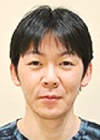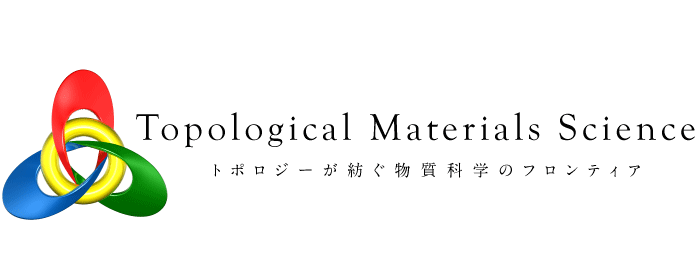Members
Members Profile

-
Yutaka Akagi
Assistant Professor, Graduate School of Science, the University of Tokyo
- Specific
Topics: - Exploring many-body topological phases via machine learning
E-mail : akagi[at]cams.phys.s.u-tokyo.ac.jp
- Specific
RESEARCH
From various viewpoints, I have studied topological aspects of condensed matter physics, such as proposing chiral magnetic ordering (triple-Q state) associated with topological Hall effect and ferrimagnetic state with semimetallic Dirac electrons in spin-charge coupled systems, and novel topological defects (excitations/solitons) in quantum spin systems. I have also developed and improved numerical methods for computing topological invariants in disordered systems based on noncommutative geometry and determination of topological phases via machine learning.
The purpose of my research on this project is to make a machine determining topological phases which can be used without deep knowledge about topological physics, and to show the versatility of the machine. In order to achieve the goal, I will deal with topological phases that break translational symmetry and many-body topological phases, which are usually difficult to identify.
EDUCATION
- 2009
- Bachelor Degree in Physics, Department of Physics, Tokyo Institute of Technology
- 2011
- Master Degree in Engineering, Department of Applied Physics, Graduate School of Engineering, The University of Tokyo
- 2014
- Ph.D. in Engineering, Department of Applied Physics, Graduate 2015 School of Engineering, The University of Tokyo
PROFESSIONAL EXPERIENCE
- 2015
- Postdoctoral Scholar, Okinawa Institute of Science and Technology Graduate University (OIST)
- 2015
- -Present Assistant Professor, Department of Physics, The University of Tokyo
HONORS AND AWARDS
- 2020
- The 25th Outstanding Paper Award of the Physical Society of Japan
SELECTION OF PUBLICATIONS
"Spin Chirality Ordering and Anomalous Hall Effect in the Ferromagnetic Kondo Lattice Model on a Triangular Lattice"
Yutaka Akagi and Yukitoshi Motome,
Journal of the Physical Society of Japan 79, 083711-1-4 (Aug. 2010).
DOI: 10.1143/JPSJ.79.083711
"Hidden Multiple-spin Interactions as an Origin of Spin Scalar Chiral Order in Frustrated Kondo Lattice Models"
Yutaka Akagi, Masafumi Udagawa, and Yukitoshi Motome,
Physical Review Letters 108, 096401-1-5 (Feb. 2012).
DOI: 10.1103/PhysRevLett.108.096401
"Effect of Quantum Spin Fluctuation on Scalar Chiral Ordering in the Kondo Lattice Model on a Triangular Lattice"
Yutaka Akagi, Masafumi Udagawa, and Yukitoshi Motome,
Journal of the Physical Society of Japan 82, 123709-1-4 (Nov. 2013).
DOI: 10.7566/JPSJ.82.123709
"Reconstruction of Chiral Edge States in a Magnetic Chern Insulator"
Ryo Ozawa, Masafumi Udagawa, Yutaka Akagi, and Yukitoshi Motome,
Journal of the Physical Society of Japan 83, 073706-1-4 (Jun. 2014).
https://doi.org/10.7566/JPSJ.83.073706
"Spontaneous formation of kagome network and Dirac half-semimetal on a triangular lattice"
Yutaka Akagi and Yukitoshi Motome,
Physical Review B 91, 155132-1-10 (Apr. 2015).
DOI: 10.1103/PhysRevB.91.155132
"Quantum solitons with emergent interactions in a model of cold atoms on the triangular lattice"
Hiroaki T. Ueda, Yutaka Akagi, and Nic Shannon,
Physical Review A 93, 021606(R)-1-6 (Feb. 2016).
DOI: 10.1103/PhysRevA.93.021606
"A New Numerical Method for Z2 Topological Insulators with Strong Disorder"
Yutaka Akagi, Hosho Katsura, and Tohru Koma,
Journal of the Physical Society of Japan 86, 123710-1-4 (Dec. 2017).
https://doi.org/10.7566/JPSJ.86.123710
"Learning Disordered Topological Phases by Statistical Recovery of Symmetry"
Nobuyuki Yoshioka, Yutaka Akagi, and Hosho Katsura,
Physical Review B 97, 205110-1-9 (May. 2018).
DOI: 10.1103/PhysRevB.97.205110
"Z2 Topological Invariant for Magnon Spin Hall Systems"
Hiroki Kondo, Yutaka Akagi, and Hosho Katsura,
Physical Review B 99, 041110(R)-1-6 (Jan. 2019).
DOI: 10.1103/PhysRevB.99.041110
"Transforming Generalized Ising Model into Boltzmann Machine"
Nobuyuki Yoshioka, Yutaka Akagi, and Hosho Katsura,
Physical Review E 99, 032113-1-11 (Mar. 2019).
DOI: 10.1103/PhysRevE.99.032113

